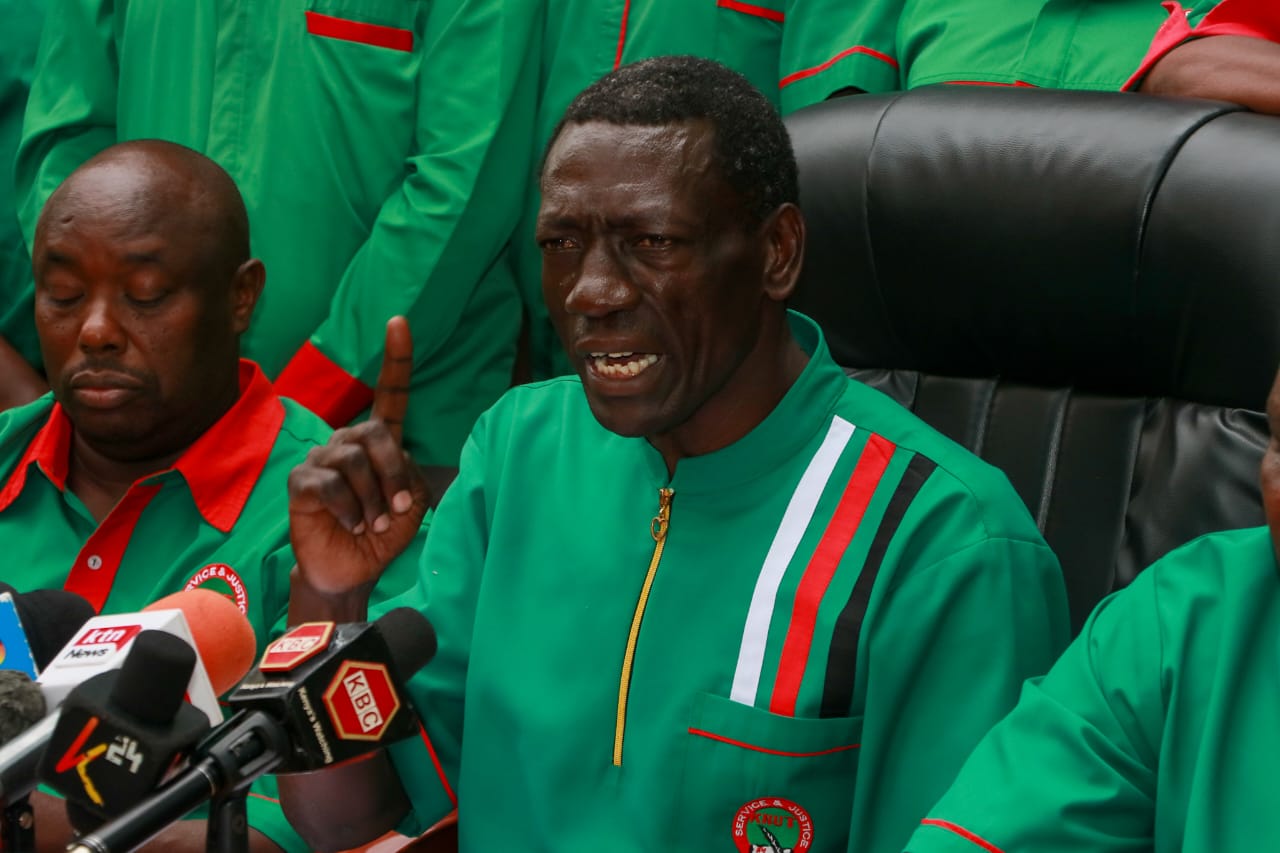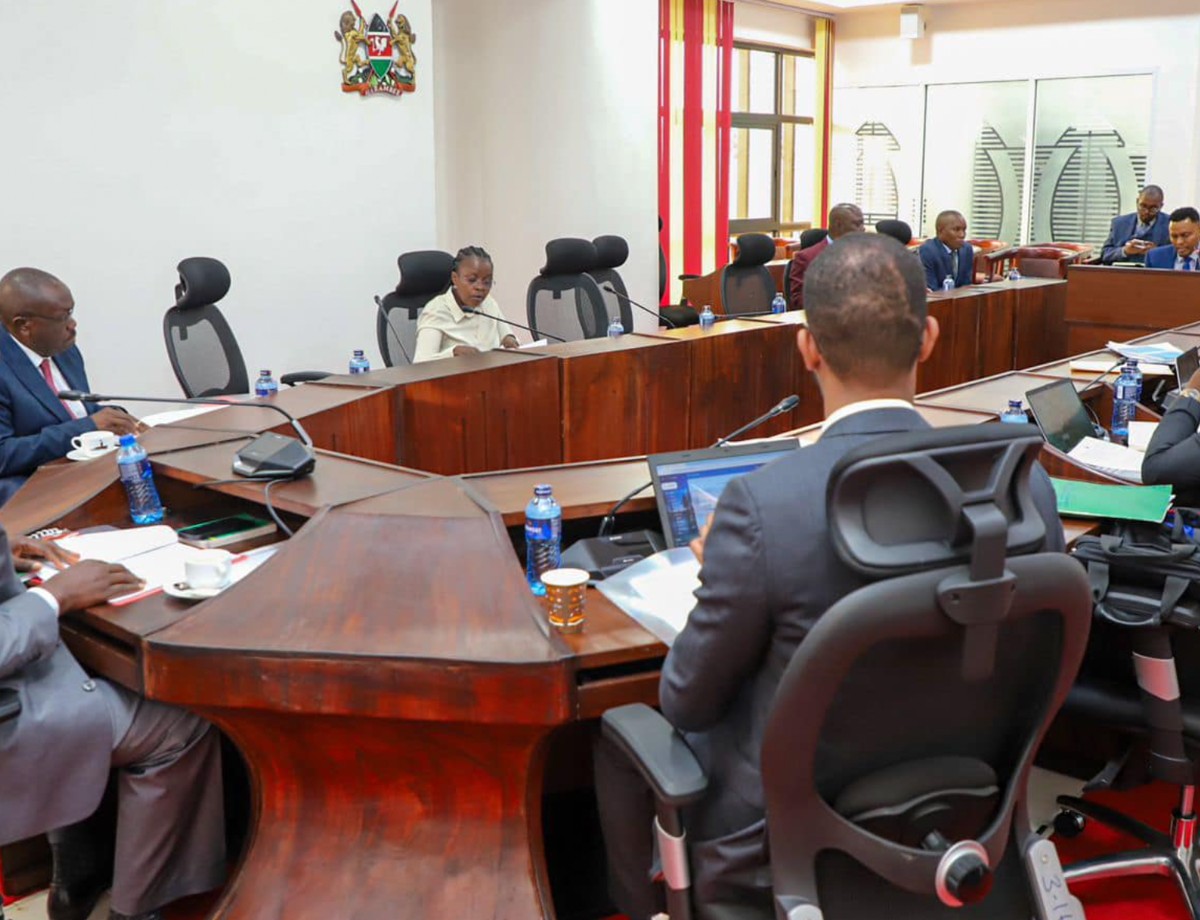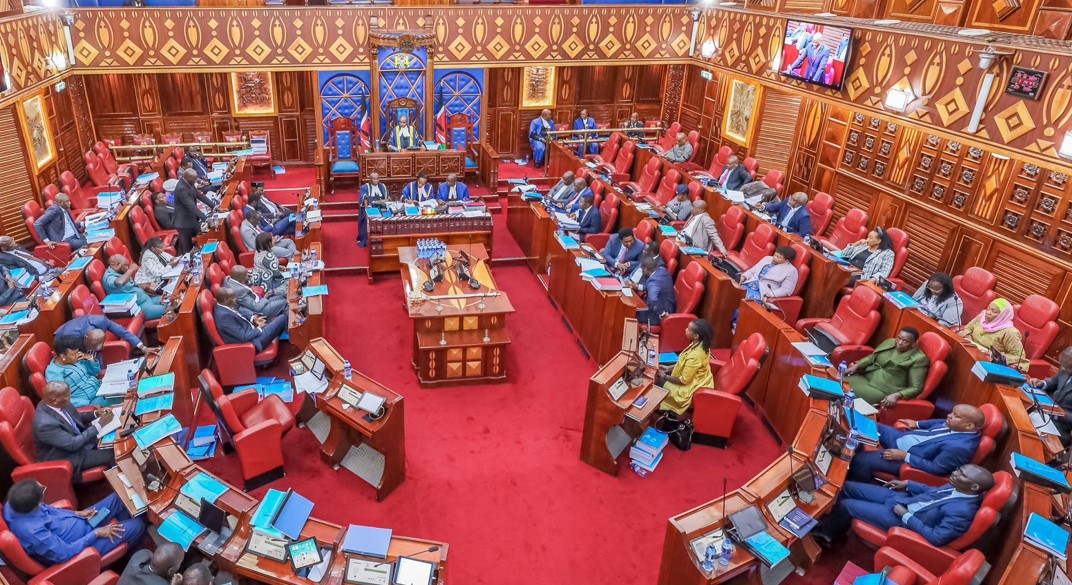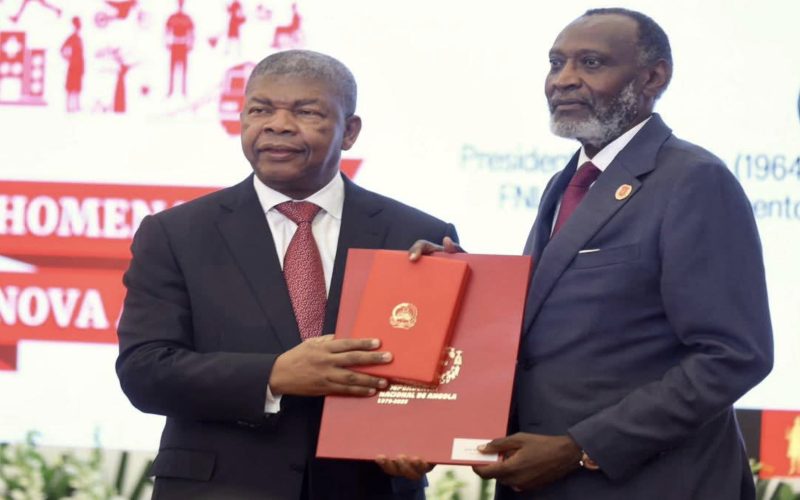Teachers’ unions reject plan to migrate them from Minet to SHA, demand proper consultation

The unions warned that the scheme remains vague, lacks transparency and could jeopardise access to essential health services.
Teachers’ unions have opposed the government’s proposal to move them and their dependents from the Sh20 billion Minet medical scheme to the Social Health Authority (SHA), warning that the scheme remains vague, lacks transparency and could jeopardise access to essential health services.
The unions, including the Kenya National Union of Teachers (KNUT), the Kenya Union of Post-Primary Education Teachers (KUPPET) and the Kenya Teachers Health and Welfare Association, maintain that teachers will not be rushed into a system without firm guarantees.
More To Read
- Teachers’ Unions demand clarity as TSC plans to move 400,000 educators to state health scheme
- Over 100 facilities accredited by SHA to provide cancer care after protests
- Over 160 newborns, 14 mothers died during Kiambu doctors’ strike - Health CS Aden Duale
- From free to unaffordable: Why more Kenyan women are giving birth at home again
- Four suspects arrested for defrauding man of Sh251,000 in fake SHA registration scheme
- Five charged with defrauding Social Health Authority of Sh17.5 million
The Teachers Service Commission (TSC) contract with Minet expires next month, and union leaders say that unless the transition is handled cautiously, more than 400,000 teachers risk losing crucial medical benefits. Government officials argue that the SHA model will expand access to health facilities.
In a meeting with union leaders, TSC and officials from the Office of the President, SHA presented its proposal, promising teachers access to more than 9,000 health facilities nationwide compared with about 800 currently under Minet. It was agreed that further consultations would continue before any transition is made.
KNUT Secretary General Collins Oyuu stressed that teachers will not be rushed into endorsing the government’s plan, saying decisions affecting millions of people require wide consultation.
“It’s a matter we must carefully take back to our members. SHA took us through several presentations, but in our view, the process is incomplete. It is only right that we refer this matter to the National Executive Council (NEC) for a final decision,” he said.
Oyuu linked the urgency of the matter to the looming expiry of the Minet cover and also referenced President William Ruto’s recent remarks at a State House meeting.
“When the President spoke about reviewing the medical cover, some assumed he was already talking about SHA. Yes, he consulted unions and teachers, but he was clear about reviewing the scheme, not migrating everyone into SHA overnight. A review is welcome, but adopting SHA wholesale requires proper consultation,” he said.
He confirmed that SHA had already briefed unions on its model but insisted the proposal must undergo public participation and address inefficiencies before implementation.
“They explained their model and what they stand for. Personally, I am not alarmed by their proposal. But as a union, we must listen to all voices before we take a stand,” Oyuu added.
KUPPET Deputy Secretary General Moses Nthurima also warned that attempts to push teachers into SHA without proper engagement would face resistance.
“The government appears determined to migrate teachers. We have not accepted the move and are telling them to engage directly with teachers. Decisions that affect teachers’ lives cannot be made at headquarters without their input,” Nthurima said.
His warning followed comments by TSC acting Chief Executive Officer Evaleen Mitei, who had told the Education Committee of Parliament that consultations were underway to move teachers to SHA by December 1.
Nthurima maintained that union leaders have not endorsed the transition, saying teachers cannot be forced into a system lacking clarity and transparency.
“You cannot wake up one morning and tell teachers to abandon a scheme they know for one whose details remain vague. We cannot be pushed into a system without transparency or firm guarantees,” he said.
He also criticised insurers for ignoring long-standing complaints under Minet, accusing them of prioritising profit at the expense of service delivery.
“For example, pre-authorisations take too long, and when doctors recommend admission, the insurer often refuses, saying their own doctors disagree. This conflict persists because the insurer appears more focused on making money than serving teachers,” Nthurima noted.
Kenya Teachers Health and Welfare Association National Secretary Ndung’u Wangenye echoed the unions’ concerns, warning that lives could be put at risk if teachers are moved to SHA without a comprehensive package.
“If SHA expects a teacher to pay as much as Sh60,000 annually, then the cover must be comprehensive, covering outpatient, inpatient, maternal, dental and optical services. Teachers must not be forced into a scheme offering less than what they already have,” he warned.
Wangenye urged the government to involve education stakeholders in designing a framework that fully protects teachers and their dependents.
“We must scrutinise everything SHA is offering because teachers have already suffered under Minet. If the new cover fails to meet their needs, we will have no choice but to oppose it,” he said.
Top Stories Today













































